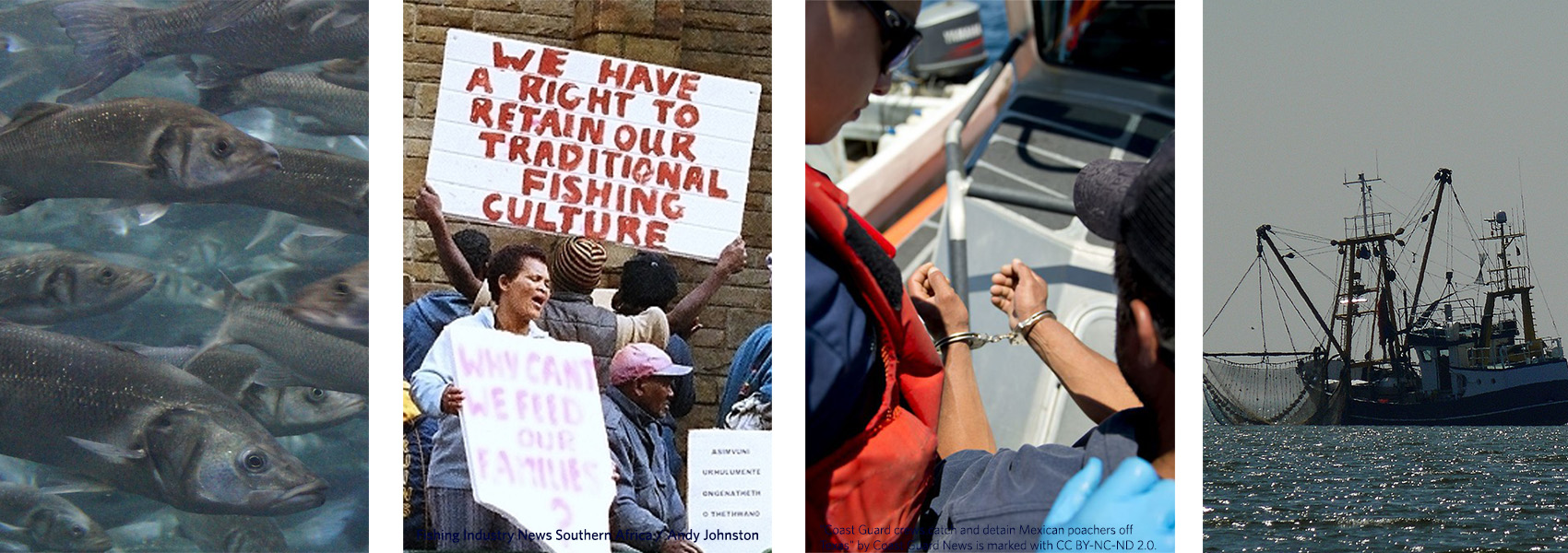The Institute for the Oceans and Fisheries has offered irregular webinars featuring IOF scholars, alumni, and international colleagues on a wide range of highly topical and relevant topics
2024

Charting a sustainable future for oceans in Canada
September 18, 2024
11:00 am to 12:30 pm
2022

Fish Wars & Blue Conflicts
April 6, 2022
10:00 to 11:30 am
This webinar brought together leading researchers on maritime and fisheries conflicts. The panelists discussed major types of fisheries conflicts, risks of escalation into militarized disputes, and impacts on affected communities and marine ecosystems. The webinar also provided a forum to discuss options to prevent and transform conflicts to improve the well-being and safety of seafaring and coastal communities, as well as long-term ocean sustainability.

Subsidizing extinction: Subsidies, Sustainable Development Goals and the World Trade Organization
March 3, 2022
10:00 to 11:30 am
In this webinar, we brought together leading experts with a range of expertise in, and perspectives on, harmful subsidies to share their knowledge about and vision for improving the environmental, social, economic, and trade implications of harmful subsidies. The panelists discussed how removing and redirecting harmful subsidies (estimated at $27.5 billion Canadian dollars per year for marine fisheries alone) could support people and the environment at the same time. The webinar also provides a forum to discuss responses and actions that are needed at individual, community, governmental and intergovernmental (e.g., the WTO) levels to address the increasing threats from harmful subsidies with respect to biodiversity and the livelihoods of millions worldwide.
2021

Salmon from freshwater to the ocean: there and back again
December 1, 2021
Salmonids are keystone species in marine, freshwater and riparian ecosystems across the north Pacific region and essential to the sustenance, culture and economies of the region’s peoples. However, many salmon populations are in decline in the face of increasing pressure from human impacts acting at local to ocean basin scales. Within the past five years, 11 populations of Fraser River Chinook salmon, 10 populations of its sockeye salmon and both interior steelhead and coho salmon have been designated as either endangered or threatened and are under consideration for addition to Canada’s Species at Risk Act. Understanding salmonid population trajectories requires integrating knowledge types across their complex life histories that span freshwater, coastal and high seas ocean habitat.
In this webinar we brought together leading experts in salmonid research across the different life stages of Pacific salmon, to share their knowledge about their unique biology and its relation with key salmonid stressors in freshwater, coastal and high seas environments. The webinar also provided a forum to discuss approaches to integrating knowledge across salmonids’ complex life histories for a holistic understanding of population responses to change that can more effectively support adaptation, conservation, restoration, and management. Also considered were the critical existing barriers to achieving knowledge integration.

Towards sustainable, resilient and just food systems and the role of aquatic foods
October 6, 2021
Food is critical to all of our lives. While developments in food systems have yielded many positive results, at their core, many of our food systems are profoundly unjust and have led to over 800 million people going hungry globally. Growing inequalities, biodiversity loss and climate change represent key threats to our future.
A sustainable food system lies at the heart of the United Nations’ Sustainable Development Goals (SDGs). To end hunger, achieve food security and improve nutrition by 2030, major transformations of our food systems are needed. Indeed, to realize the SDGs, we need to tackle profound and systemic challenges to our food systems to ensure they are more productive, inclusive, environmentally sustainable, resilient, and capable of delivering healthy and nutritious diets for all.
Food derived from or produced in aquatic environments have a key role to play in achieving food security, ending malnutrition and building healthy, resilient food systems. These aquatic foods provide protein and essential micronutrients to a diversity of communities worldwide and often have comparatively low carbon footprints. Yet these foods are often neglected in food policy.
In this webinar, we brought together leading experts with a range of expertise in and perspectives on food systems to share their knowledge about and vision for sustainable, resilient and just food systems. The webinar also provided a forum to discuss responses and actions that are needed at individual, community and governmental levels to address this important topic.

Record-breaking heatwaves, aquatic biodiversity, and human communities: BC and beyond
July 29, 2021
The heatwave that occurred in western Canada in early July 2021 broke temperature records in many areas, causing possibly over 600 excess heat-related deaths and a mass die-off of marine life along the seashore in British Columbia. Recent studies show that climate change has been increasing the intensity and frequency of heatwaves. The ocean, rivers, and lakes, as well as their fisheries and dependent human communities, such as coastal Indigenous people, are also largely affected by heatwaves in addition to the other impacts from climate change. We need to act to prevent the avoidable impacts and adapt to the unavoidable changes, locally through initiatives such as the British Columbia Climate Preparedness and Adaptation Strategy and internationally through the Paris Agreement.
In this webinar, we brought together leading experts in climatology, oceanography, aquatic ecology, and fisheries from UBC’s Institute for the Oceans and Fisheries to share their knowledge about heatwaves and their impacts on biodiversity and dependent human communities. The webinar also provided a forum to discuss responses and actions that are needed at individual, community, and governmental levels to address the increasing threats from heatwaves to biodiversity and society.